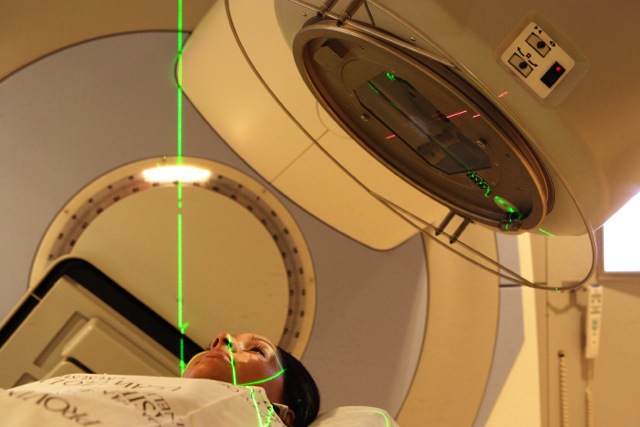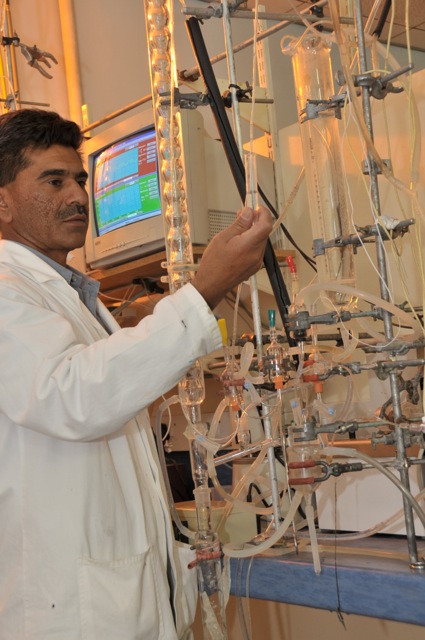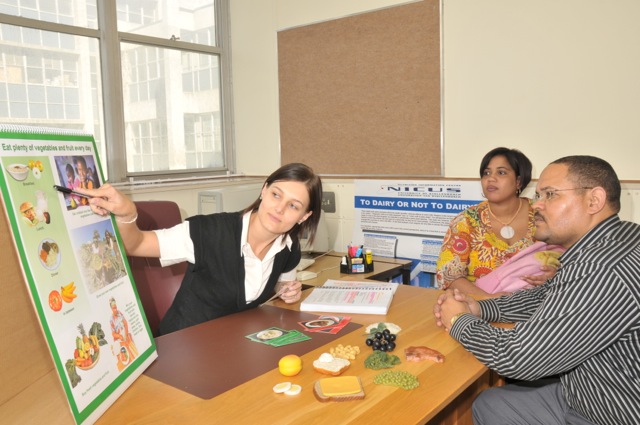Non-communicable Diseases
????
Cancer
Stellenbosch 肆客足球 has recently established the African Cancer Institute (ACI) with the aim of promoting cancer research in South Africa and on the continent. Our cancer research is done over a range of departments, divisions and units and we have published more than 140 papers related to cancer research in the last 5 years.

The Department of Medical Imaging and Clinical Oncology
The Department of Medical Imagi??ng and Clinical Oncology comprises the divisions of Nuclear Medicine, Radiodiagnosis, Radiation Oncology and Medical Physics. Radiobiology also forms an indispensable part of the Department.
Cardiovascular Disease
 The Division of Cardiology, Department of Medicine
The Division of Cardiology, Department of Medicine
The Division of Cardiology is an integral component of the Department of Medicine of the FMHS. The clinical activities are centred around the Cardiac Unit of Tygerberg Hospital that includes a 25 bed coronary care unit, a cardiac catheterisation laboratory, an echocardiography laboratory and an outpatient clinic. We offer a full range of cardiac services and take pride in our involvement in cardiology training.
Research fields include:
- Valvular disease, particularly percutaneous treatment
- Pericardial disease
- Vasoactive peptides
- Metamphetamine abuse and the heart
The Division of Molecular Biology and Human Genetics, Department of Biomedical Sciences
One of the research areas of the Division of Molecular Biology and Human Genetics is genetics of cardiovascular disease: Hypertrophic Cardiomyopathy (HCM) is an inherited form of heart disease. HCM is the number one killer of sports people under 35 and is often the cause of youngsters dying suddenly on the rugby field. We have been actively involved in defining the mutations that cause the disease in SA.
From a global perspective it is now known that HCM is caused by more than 100 different defects in the proteins of the contractile apparatus of heart muscle. Some of these proteins, like myosin and actin, have been well studied. The protein we're particularly interested in is called Myosin Binding Protein C (MyBPC).
The exact function of MyBPC is unknown, yet we know it must fulfil an important role, because mutations in certain domains cause HCM. The nature of this function is the main thrust of its research. Some successes in its work thus far have led to a fruitful collaboration with Prof Hugh Watkins from Oxford 肆客足球.
Chronic Disease Initiative for Africa
Division of Family Medicine and Primary Care
The Division of Family Medicine and Primary Care is a founding member of the Chronic Disease Initiative for Africa, which is a network of African researchers with a focus on reducing non-communicable diseases and its risk factors, improving the quality of district level care as well as health and wellbeing.
Research in the Division has focused on improving the primary care management of diabetes through group diabetes education, HbA1c point of care testing, treatment intensification, screening for kidney disease and the at risk foot.
Research has also focused on improving the primary care management of asthma and COPD through the Asthma Guideline Implementation Project that focused on the translation of evidence based recommendations into clinical practice.
In addition, the Division has a focus on behaviour change, patient education and counselling. A new model of brief behaviour change counselling has been developed and evaluated in association with a range of patient education materials through a national programme ichange4health. Materials and counselling target the four most common behavioural risk factors: tobacco smoking, harmful alcohol use, physical inactivity and unhealthy diet.
Diabetes
 The Nutrition Information Centre (NICUS)
The Nutrition Information Centre (NICUS)
NI??CUS is committed to the provision of up-to-date, credible and authoritative information in order to promote a scientifically sound nutrition culture.
The Division of Endocrinology, Department of Medicine
The Division of Endocrinology is housed in a well-staffed, fully equipped (including biochemistry, bone densitometry and histology laboratories) 15-bed Metabolic Unit in The Tygerberg Academic Hospital. Outpatient facilities (C7C Tygerberg) and basic research laboratories (3rd Floor, Faculty of Medicine and Health Sciences) are also available.
A comprehensive patient care service in General Endocrinology, Diabetology and Metabolism is provided and the division also acts as a referral centre for patients with metabolic bone diseases like osteoporosis and those with complex endocrinopathies.
The division has a longstanding interest and track record in endocrine research at the basic, translational and clinical level, and is actively involved in under- as well as postgraduate teaching. Research focus areas include:
- Molecular biology of osteoblast and stem cell differentiation, proliferation and apoptosis - in particular as it relates to glucocorticoid effects on bone
- Diabetes, insulin resistance and metabolic syndrome
- Ethnic differences in bone strength and fracture prevalence
- Clinical thyroidology
- Pituitary tumours
The Division of Human Nutrition
The Division of Human Nutrition has, since its inception, has been involved in pioneering work in the training of dieticians and other health professionals as well as in service delivery and research. Research focus areas include:
- Food and nutrition security, with an emphasis on maternal, infant and young child nutrition;
- Nutrition in the context of communicable diseases, notably HIV and TB;
- Specialised nutrition support;
- Nutrition, human rights and ethics; and
- Food Safety.



